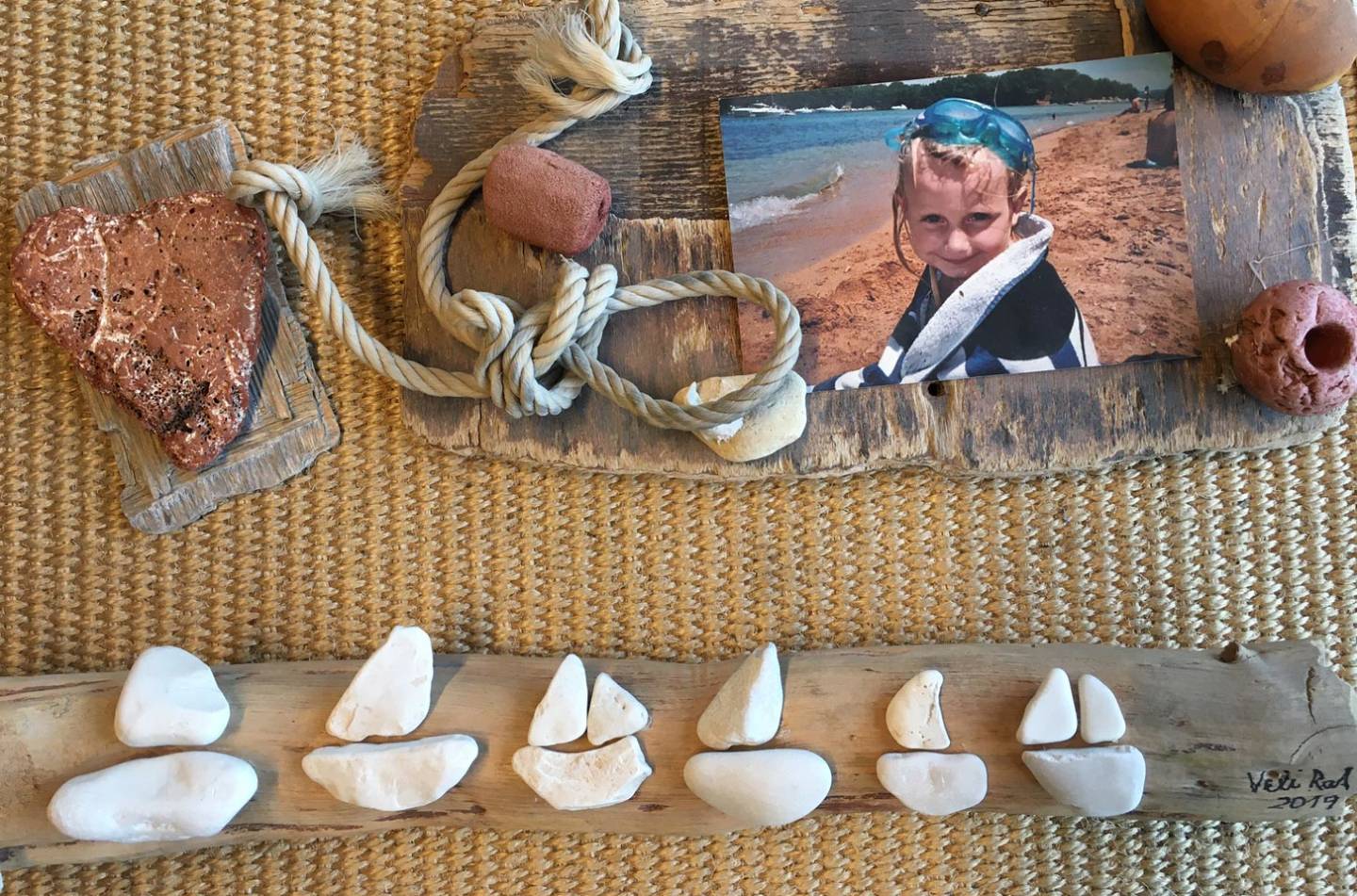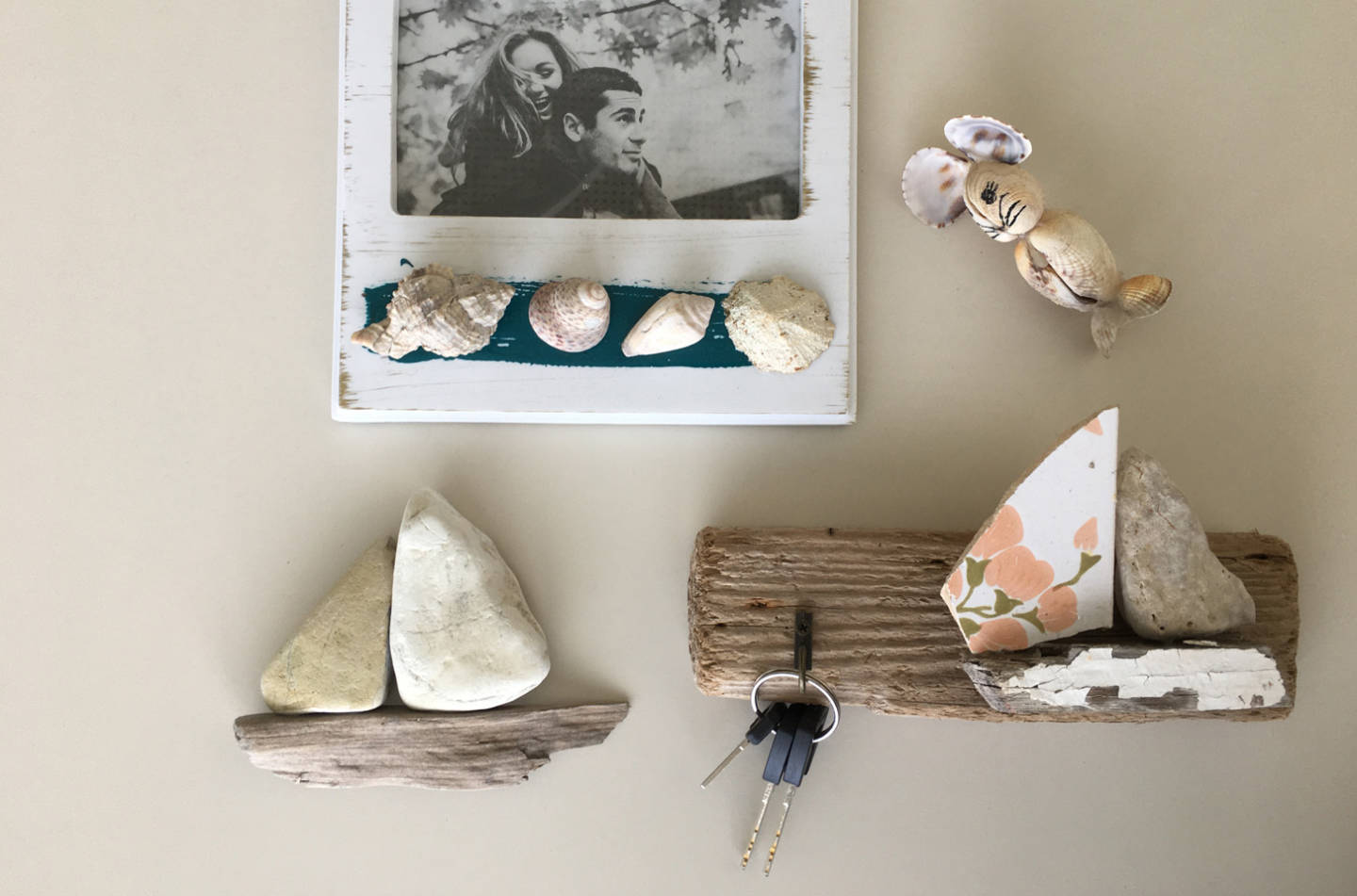Handicrafts with flotsam, environmental and species protection
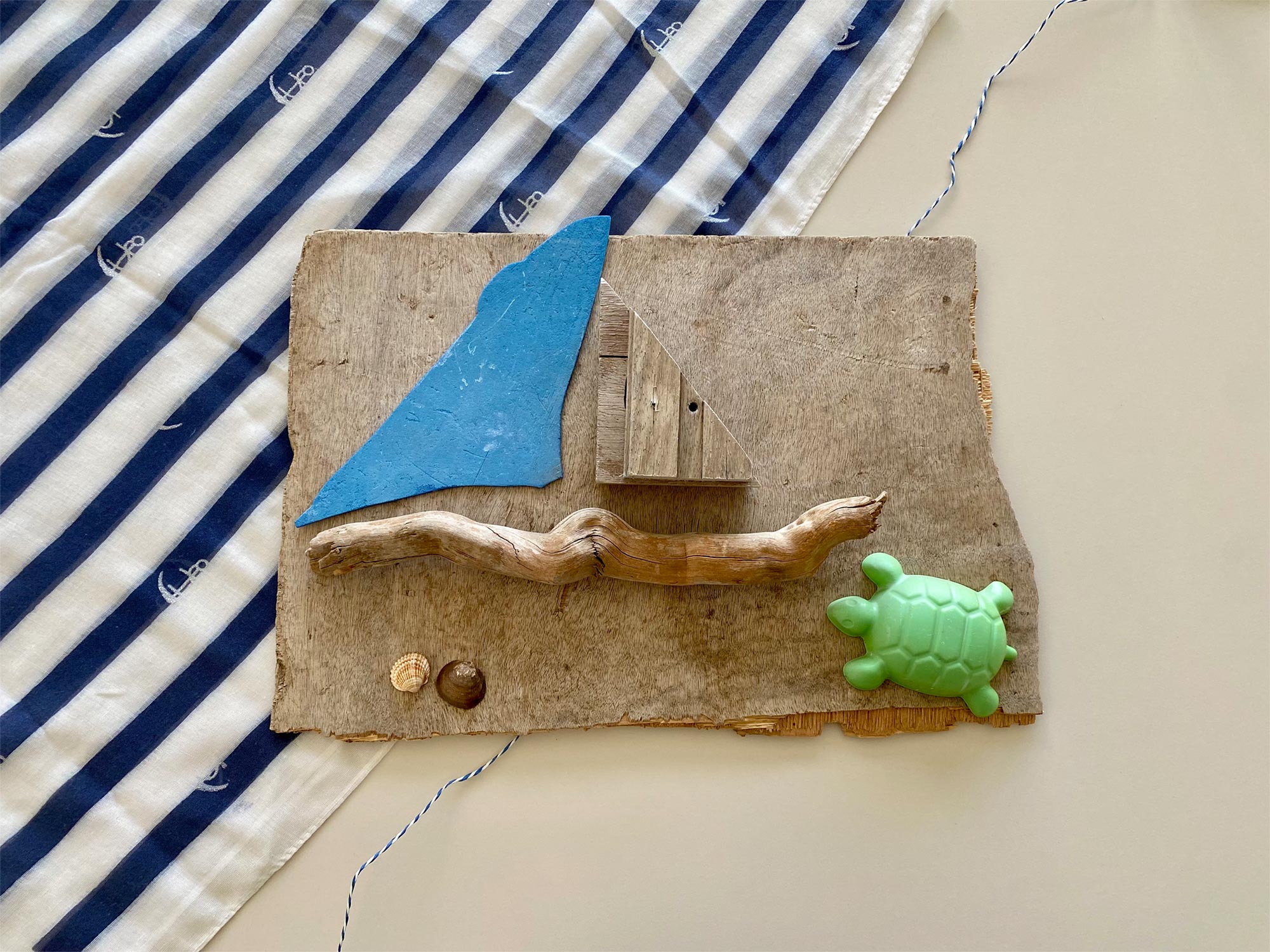
After jumping into the cool water, exploring the beach is usually one of the first activities after docking in a bay. Just like building a sandcastle and flicking stones across the water, looking for seashells is also very popular, especially with children. You will come across all kinds of flotsam that is good for handicrafts.
You should keep this in mind when looking for shells and flotsam:
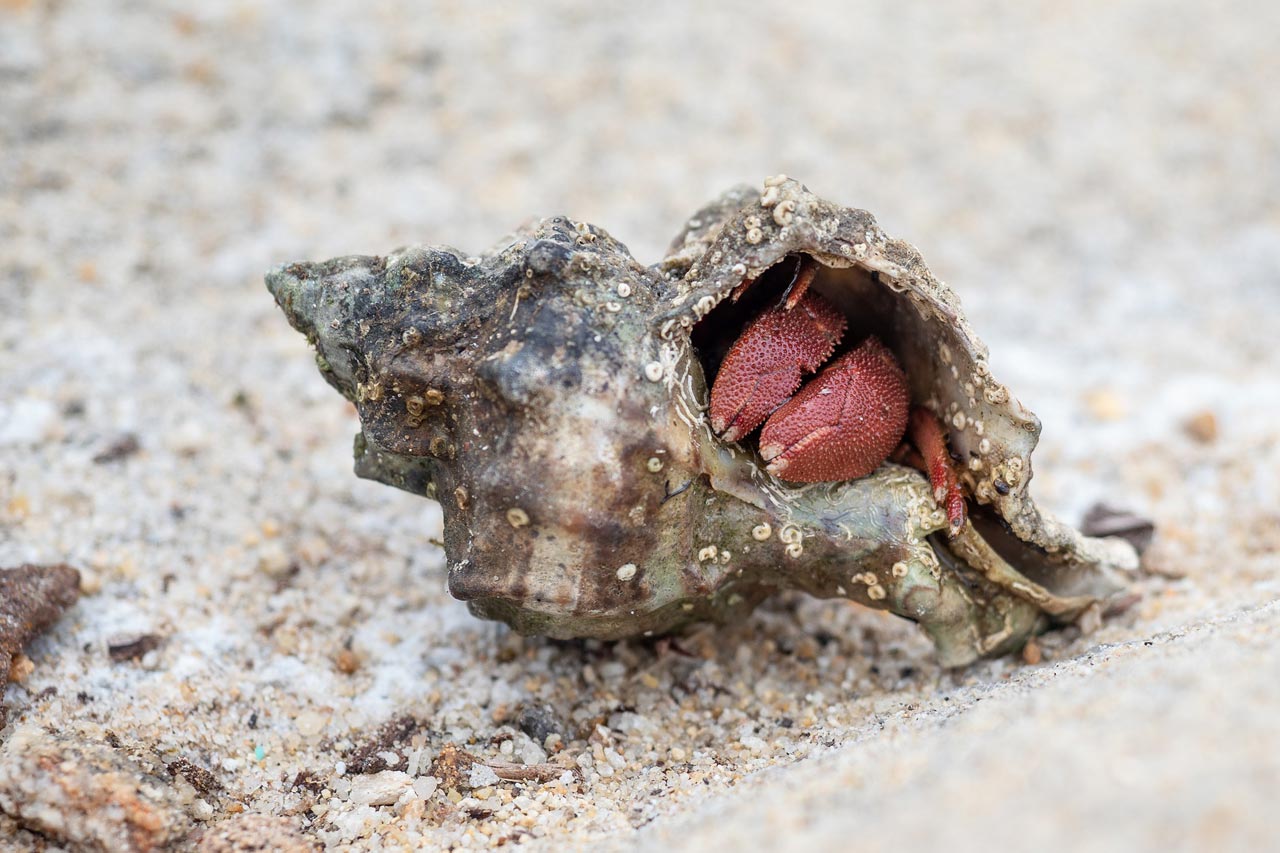
In general, it is not forbidden to collect shells or take them out of the sea in Croatia, but please no live shellfish. You should also not take empty snail shells with you, because hermit crabs need these shells to survive. So please make sure that no hermit crabs live in shells that appear to be empty! Especially when snorkeling, you should refrain from taking such inhabited snail shells with you, because this is an intervention in the ecosystem. Shells should be collected mainly from the dry beach. Under water, they serve as a habitat for various animals and plants. Even small fish lay their spawn on the seabed in mussel shells.
Grundsätzlich sollte man Muscheln nur in kleinen Mengen vom Strand mitnehmen. Hier macht es nicht so viel aus, wenn man einige davon mitnimmt, denn Muschelschalen bestehen hauptsächlich aus Calciumcarbonat (Kalk) und diese würden mit der Zeit ohnedies zerfallen. Doch international sind einige Arten von Muscheln bereits in Gefahr, weil Sammler nicht warten wollten und lebende Tiere aus dem Meer holten.
Urgent request: Please do not collect and clear the entire beach - under no circumstances protected shells such as the noble pen shell be collected or torn off.
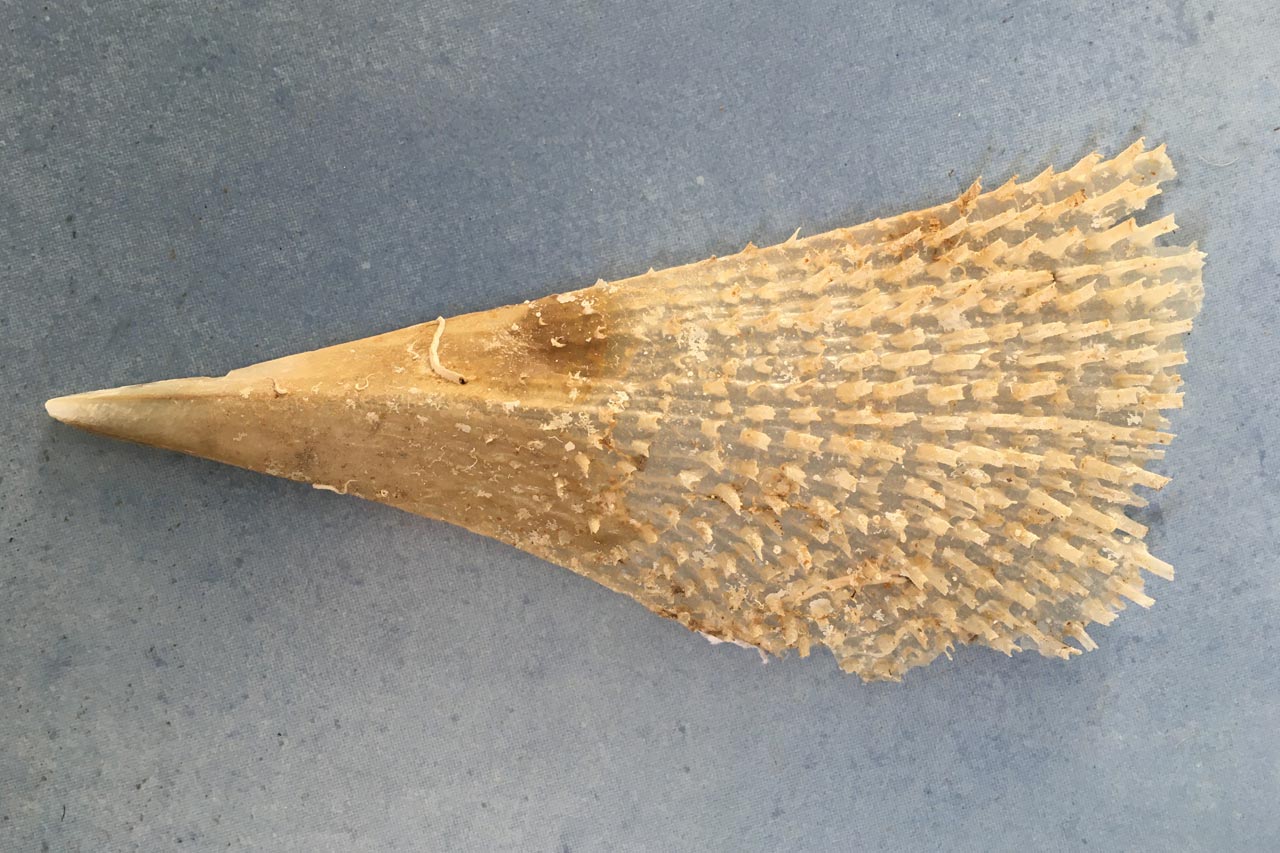
So if you take mussels home as a souvenir from your holiday, please make sure that they are not protected species. Even dead, protected mussels may not be taken with you, regardless of whether you search for them yourself or buy them, their possession and export is punishable by law.
Pay attention to the sea, the beach and its inhabitants
Unfortunately, due to pollution and warming water, there are fewer and fewer seashells and marine life. See a starfish while snorkeling, please do not touch it. Please leave these amazing creatures where they are, at the bottom of the sea. He's very delicate and might get hurt if you bring him to the water's surface to show him off! Better to remember these marine organisms as you saw them. Enjoy the sight while snorkeling, but don't bother or touch them so they can survive and others can still enjoy them.
The sea is not only an attraction for tourists, let's show responsibility for it!
In Italy it is even absolutely forbidden to take sand and shells with you - the beach in Italy may not be modified by law! In Greece and Turkey, there are many ancient pottery and pottery shards and other archaeological finds to be seen while snorkeling. However, it is forbidden to bring them from the seabed to the surface or even to take them home. There are high penalties for this, because the potsherds, which often appear simple, are cultural and natural assets. At the airports, this is searched for with special X-ray machines!
What can arise from found objects
With our simple flotsam craft ideas, we definitely don't want to encourage you to harm the sea and its inhabitants! If you have collected enough flotsam and shells, you can put this artistically and decoratively as a collage on a white background and then photograph it. You can then enlarge and frame this photo so that you have a wonderful holiday memory.
You can also make great and creative works of art from washed-up rubbish, you can find some inspiration in the picture gallery below. Pitter Yachtcharter is a member of Green Sail and supports Living Ocean, the Austrian organization for marine and climate protection. For the sake of our environment! You can find out more about this in our environmental brochure.
More craft ideas will be added to our blog soon.




